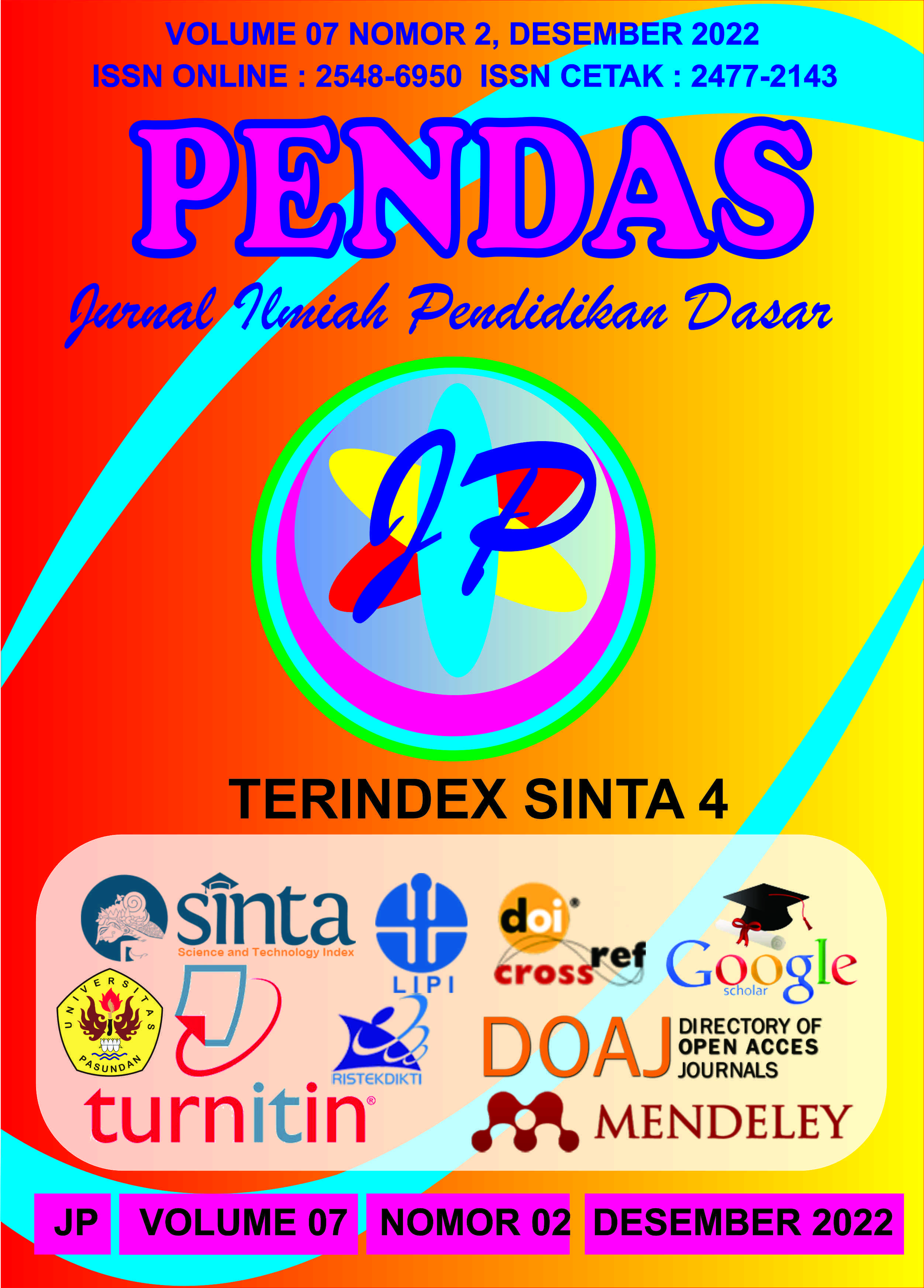IMPLEMENTASI KURIKULUM MERDEKA BELAJAR DALAM PANDANGAN FILSAFAT IDEALISME
DOI:
https://doi.org/10.23969/jp.v7i2.6774Keywords:
educational philosophy, idealism, independent curriculumAbstract
Philosophical education is a combination of opinions originating from philosophy which is the core of the field of education. The philosophical foundation of education is a form of arrangement composed in an idea or thought about the world of education explained from a general philosophical idea or thought (Metaphysics, Epistemology, Axiology) suggested by a particular philosophical school. the essence of man is not his body, but his soul/spirit, man is a thinking being, capable of choosing or being free, living by a clear and purposeful moral code. The task and purpose of human life is to live according to their talents and moral values and norms handed down by the Absolute. The Relationship between Philosophy of Idealism and the Independent Curriculum. The relationship between philosophical idealism and independent learning is a unity that cannot be separated. The concept of independent learning is part of the efforts that fulfill the primary and secondary education system. With this concept, a special strategy was chosen to liberate various things in the implementation of education. Educators' understanding of philosophy of idealism as a knowledge base which is very important to understand, as a basis for thinking and as a basis for implementing the concept of independent learning which is neatly arranged with the aim of reforming the education system in Indonesia. Education according to the philosophy of idealism emphasizes the formation of students to be able to carry out social responsibility and human beings are thinking beings, able to choose or be free, living by a clear and purposeful moral code.
Downloads
References
Anwar, Fathul. (2022). Kebijakan Merdeka Belajar dan Implikasi Pada Pendidikan Agama Islam Sebuah Analisis. Jurnal Ar Rahmah. Vol. 1 (1): 37-50.
Barnadib, Imam, Filsafat Pendidikan, Yogyakarta: Adicita, 2002.
Callahan J. F., Clark, L.H., (1983), Foundation of education, Macmillan Publishing Co. Inc., New York.
Jojor, Anita dan Hotmaulina Sihotang. (2022). Analisis Kurikulum Merdeka dalam Mengatasi Leraning Loss di Masa Pandemi Covid-19 (Analisis Studi Kasus Kebijakan Pendidikan). Jurnal Ilmu Pendidikan. Vol. 4, (4): 5150-5161.
Jumali, M dkk, Landasan Pendidikan, Surakarta: Muhammadiyah University Press, 2008.
Kneller, G., (Ed.), (1971), Foundations of Education, John Wiley and Sons, New York.
Mustaghfiroh, Siti. (2020). Konsep “Merdeka Belajar” Perspektif Aliran progresivisme John Dewey. Jurnal Studi Guru dan Pembelajaran. Vol.3, (1): 141-147 (https://doi.org/10.30605/jsgp.3.1.2020.248).
Noviyanti, Ika Nurma. (2019). Kurikulum 2013 Dalam Perspektif Filsafat Pendidikan Progresivisme. Journal of Mathematics and Mathematics Educations. Vol. 9, (1): 35-43. https://jurnal.uns.ac.id./jmme. Vol.09, No. 1, Juni 2019. hal: 35-43.
Ornstein, Allan C & Daniel U, An Introduction To The foundations of Education, Boston: Houghton Mifflin Company,1985.
Sekarwati, Etik dan Endang Fauziati. (2021). “Kurtilas dalam Prespektif Pendidikan Progresivisme” dalam Jurnal Pendidikan dan Sains Lentera Arfak, Vol. 1, (1): 29-35.
Undang-Undang R.I. No. 20 Tahun 2003 Tentang “Sistem Pendidikan Nasional”.
Zais, R. S. (1976). Curriculum: Principles, and Faoundations. New York: Harper & Row Publisher.
Downloads
Published
Issue
Section
License
Copyright (c) 2022 Pendas : Jurnal Ilmiah Pendidikan Dasar

This work is licensed under a Creative Commons Attribution 4.0 International License.














































